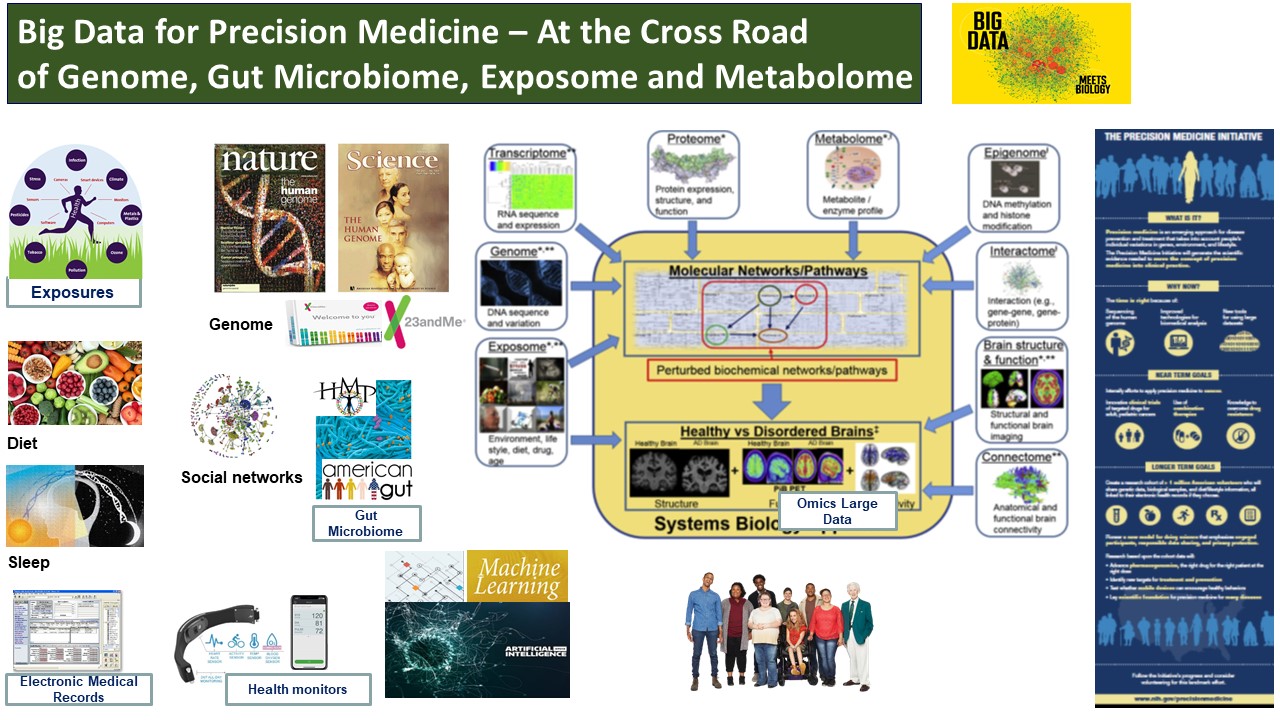Vision
Large Data Enabling a Quantitative Systems Pharmacology Approach Towards Precision Medicine
The scaling up of data in clinical pharmacology and the merger of systems biology and pharmacology has led to the emergence of a new discipline of Quantitative and Systems Pharmacology (QSP) as an enabling tool for Precision Medicine. This new research direction will significantly advance the discovery, development and clinical use of therapeutic drugs. Our research communities from computational biology, systems biology and biological engineering—working collaboratively with pharmacologists, geneticists, biochemists and analytical chemists—are creating and modeling large data on drug effects that is transforming our understanding of how these drugs work at a network level. Our consortium has made seminal contributions to the field of pharmacogenomics and its application to the study of major depression. Team members have led landmark studies including the STAR-D, PGRN SSRI Study and the Emory PReDICT Study, in addition, our metabolomics consortium has established foundations for a new and rapidly growing field – pharmacometabolomics—in which large biochemical data-capturing effects of genome, gut microbiome and environment exposures is being used to provide insights about metabotypes as readouts for treatment outcomes. Metabolic signatures at baseline prior to treatment were shown to inform about response to antidepressants, including sertraline and citalopram/escitalopram, as well as, response to placebo. Metabolic signatures of exposure to these medications enable highlighting of biochemical pathways implicated in therapeutic response, as well as, side-effects to treatment with SSRIs. We have defined novel mechanisms of action for the rapid acting drug, ketamine and we continue to define biochemical pathways implicated in its response. Molecular signatures for treatment-resistant depression are being defined. We are connecting the metabolome and the genome to enable them to inform one another about mechanisms of variations of response to treatment. The use of this large data in combination with medical records, diet and lifestyle information, and drug/drug metabolite levels will enable the QSP and Systems Precision Medicine approach.

